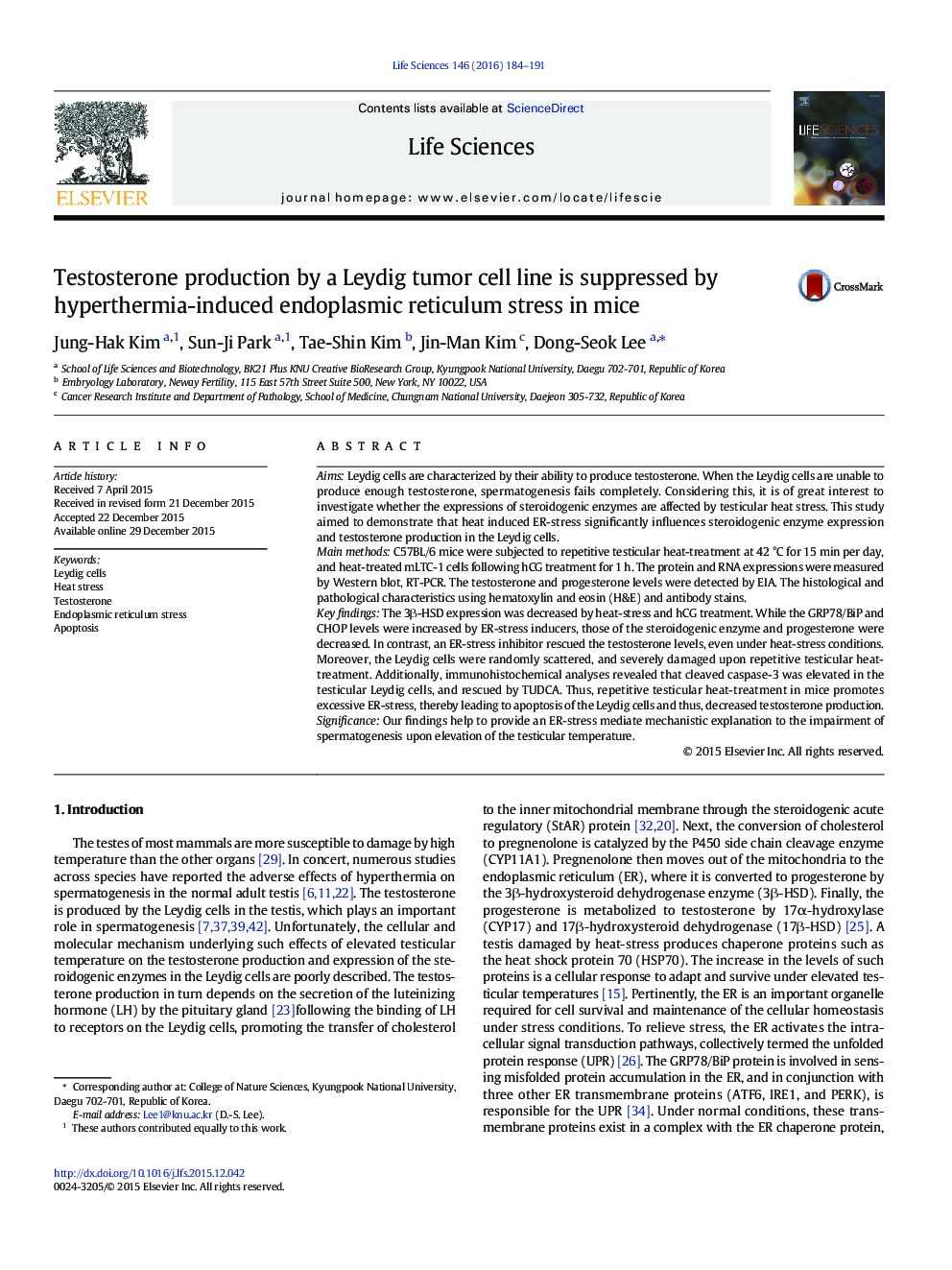| Article ID | Journal | Published Year | Pages | File Type |
|---|---|---|---|---|
| 2550680 | Life Sciences | 2016 | 8 Pages |
AimsLeydig cells are characterized by their ability to produce testosterone. When the Leydig cells are unable to produce enough testosterone, spermatogenesis fails completely. Considering this, it is of great interest to investigate whether the expressions of steroidogenic enzymes are affected by testicular heat stress. This study aimed to demonstrate that heat induced ER-stress significantly influences steroidogenic enzyme expression and testosterone production in the Leydig cells.Main methodsC57BL/6 mice were subjected to repetitive testicular heat-treatment at 42 °C for 15 min per day, and heat-treated mLTC-1 cells following hCG treatment for 1 h. The protein and RNA expressions were measured by Western blot, RT-PCR. The testosterone and progesterone levels were detected by EIA. The histological and pathological characteristics using hematoxylin and eosin (H&E) and antibody stains.Key findingsThe 3β-HSD expression was decreased by heat-stress and hCG treatment. While the GRP78/BiP and CHOP levels were increased by ER-stress inducers, those of the steroidogenic enzyme and progesterone were decreased. In contrast, an ER-stress inhibitor rescued the testosterone levels, even under heat-stress conditions. Moreover, the Leydig cells were randomly scattered, and severely damaged upon repetitive testicular heat-treatment. Additionally, immunohistochemical analyses revealed that cleaved caspase-3 was elevated in the testicular Leydig cells, and rescued by TUDCA. Thus, repetitive testicular heat-treatment in mice promotes excessive ER-stress, thereby leading to apoptosis of the Leydig cells and thus, decreased testosterone production.SignificanceOur findings help to provide an ER-stress mediate mechanistic explanation to the impairment of spermatogenesis upon elevation of the testicular temperature.
